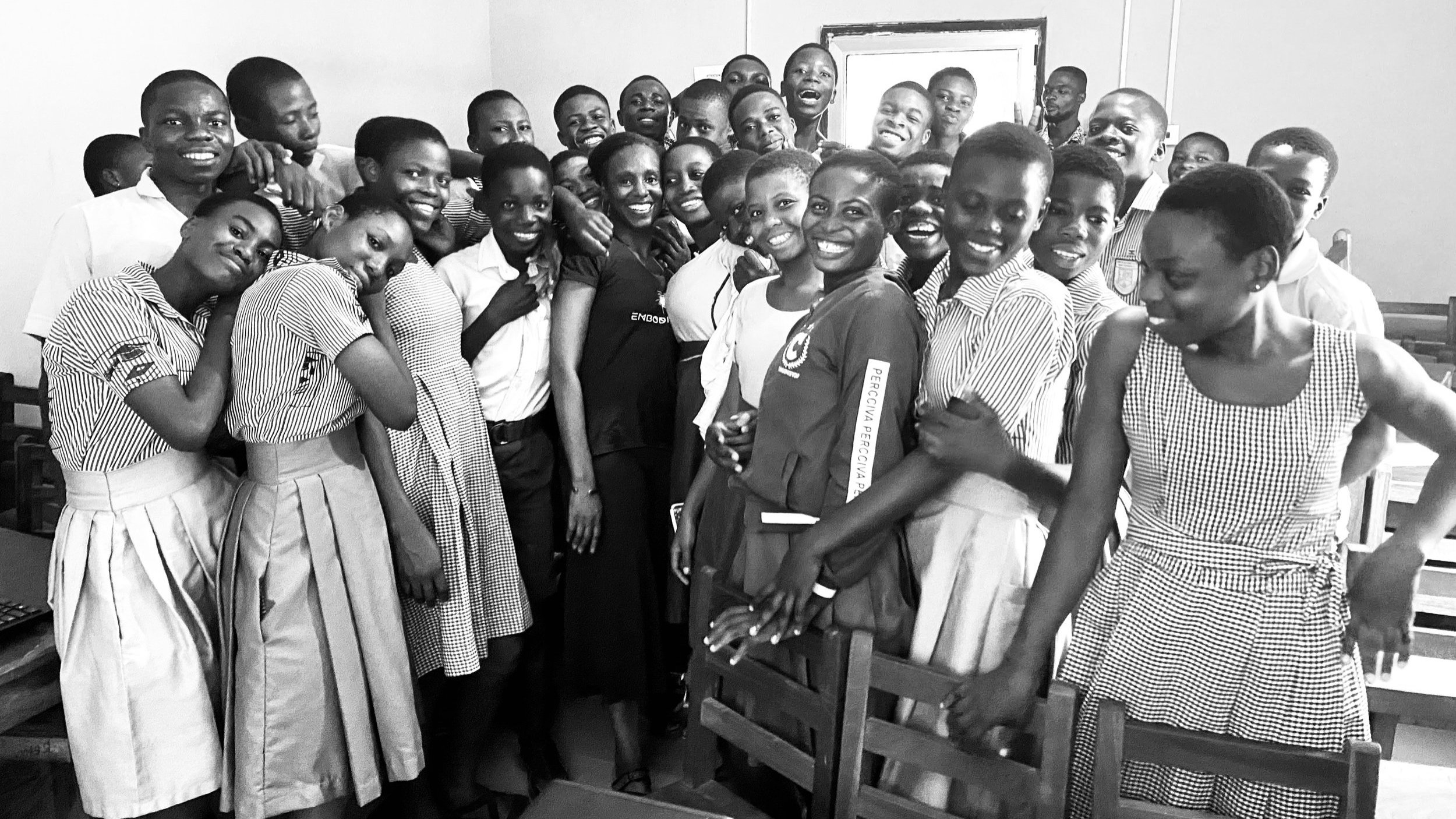From Embodiology® to Empowerment: Professor. S. Ama Wray’s Impactful Initiatives in Kopeyia Bloomfield School
Setting the Stage for Reconnection
In July, I had the privilege of working with Prof. S. Ama Wray, a distinguished scholar, multidisciplinary artist, theatre director and visionary thinker with a rich experience in dance pedagogy. Assisting Prof. Wray on her research trip to Kopeyia was a rich experience but our research partnership actually goes back a few years. Sometime in 2017, I met a demure, soft-spoken lady in Prof. Avorgbedor’s office at the Institute of African Studies (University of Ghana). Little did I know Prof. Wray had already accomplished so much in her academic and creative career, yet she was still full of ambition and brilliant ideas. She was a passionate lover of jazz and dance. Prof. Wray had just finished her doctoral research the previous year and I was on the verge of completing mine the following year. Our initial academic discussions sparked an instant connection. As fate would have it, we both shared similar intellectual interests - music, performance, spirituality, technology, cultural philosophy and community development. Prof. Wray was drawn to my research as much I was also inspired by hers. Through her doctoral research, Prof. Wray pioneered Embodiology®, a practical strategy filled with techniques to live life more fully and also enhance creative skills development in the field of music and dance. Prof. Wray describes it as a training methodology and a theoretical framework that makes inherent improvisation discernible to the nonpractitioner. Embodiology® taps its creative inspiration from an Ewe concept known as Seselelame, a vibrant creative life-force which unlocks the creative potential buried within each person’s psyche. Among the Ewe, Seselelame is considered a powerful life-force that could be nurtured and utilized in our creative, professional and private lives. A psychic energy that channels creative skills to unlock our physical and spiritual well-being. Embodiology® has been introduced at the following institutions: Temple University, Martha Graham School, UC Berkeley, Atlantic Center for the Arts, University of Wisconsin Madison, University of Ghana, Legon, University of Texas, Austin, World Dance Alliance Conference, NDEO Conference, Dance Studies Association, Middlesex University, San Francisco Conservatory of Music, Princeton University, Urban Movement Arts, Serendipity-UK, Jazz Antiqua, and the California Dance Educators Association.
Prof. S. Ama Wray
Prof. Wray currently holds the position of Professor of Dance at the esteemed Claire Trevor School of the Arts within the University of California, Irvine. She is the founder of the Africana Institute of Creativity Recognition and Elevation (AICRE) and also one of the founding members of AI4Afrika which was initiated in 2020. AI for Afrika (AI4A) is a change-oriented consortium of scholars, scientists, artists, data architects, medical doctors, educationalists, entrepreneurs, attorneys, and philosophers from diverse Africana worlds. The core group is made up of African and diasporic professionals who are passionate about artificial intelligence and humane technology. They work together to share ideas and knowledge, and to promote the use of AI for positive social impact. One of the essential goals of AI4Afrika is to utilize the full potential of Artificial Intelligence and train a new generation of Black students to become conscious leaders employing and manipulating these new technologies centered on the African philosophy of Ubuntu to drive innovation beneficial to solving the issues of the global Black community and the world at large.
Through her teaching, social initiatives and artistic endeavors, Prof. Wray continues to leave an indelible mark on the world of dance, inspiring aspiring dancers, artists and young students around the globe. On her recent journey of knowledge sharing and giving back to society, Prof. Wray traveled back to Kopeyia, a small village located in the Volta region around the south Eastern part of Ghana. Sometime in 2021, Prof. Wray was able to accumulate funds to set up a modest computer lab for the students at Kopeyia Bloomfield School. This was a move to make technology more accessible to meet the educational needs of the school, founded by the late Godwin Agbeli, who was also an anlo-Ewe music expert. Kopeyia is where she conducted her doctoral fieldwork, learnt from her ancestors, imbibed the knowledge, applied its principles and birthed Embodiology® as a mind-body science, a cultural philosophy, a blueprint to spiritual and physical well-being. Kopeyia is where it all began. So after her brief trip to reconnect with Dagbe Cultural Centre and the Kopeyia Bloomfield School, I had a brief chat with Prof. Wray to share her exciting journey into Embodiology® to inspire us all. My personal interactions with Prof. Wray over the years has been nothing short of a fulfilling experience. The ensuing conversation is a testament to the extraordinary work she has been engaged in over the past decade. Prof. S. Ama Wray, Robert Klu (the Headmaster) and teachers of Kopeyia Bloomfield School.
Dr. Sela Adjei: Greetings Prof. Wray, please tell us about your recent trip to Ghana. What was the purpose of your trip to Kopeyia Bloomfield School in the Volta region?
Prof. S. Ama Wray: Since 2013 I have been visiting the Volta Region, specifically to be in community with the artists and villagers of Kopeyia. The Dagbe Cultural Arts Center has been at the center of my research into improvisation for 10 years. Most people go to Dagbe to learn the Anlo Ewe Dance-Drumming repertoire and that is where I began my journey to educate myself about the living concept of Seselelame. This term is used to connect sensations, feeling, thoughts and action. It sensitizes and expands a person to knowledge that is ever emergent in the entirety of the body, not just the head. This concept was presented in the works of Figiagbedzi, Guerts and Avorgbedor and I sought to understand how it manifested in performance. That is the long version of the story. On this occasion my return to Kopeyia and the visit to Bloomfield School was to meet the school’s children, teachers and head who had installed the computer lab that had been opened as a result of Embodiology® being shared and adopted by communities in the USA. In many ways the term Embodiology® is my approximation of the Seselelame concept. It delves deep into the felt experience and explores liminality, in-betweeness, and joy as an aesthetic. So my effort at the school was to share with the pupils how I am utilizing their ways of knowing and embodied sophistication to teach and coach people towards flourishing. It was an important stage of giving back to the community who have shared their ways of life with me so abundantly to such great effect.
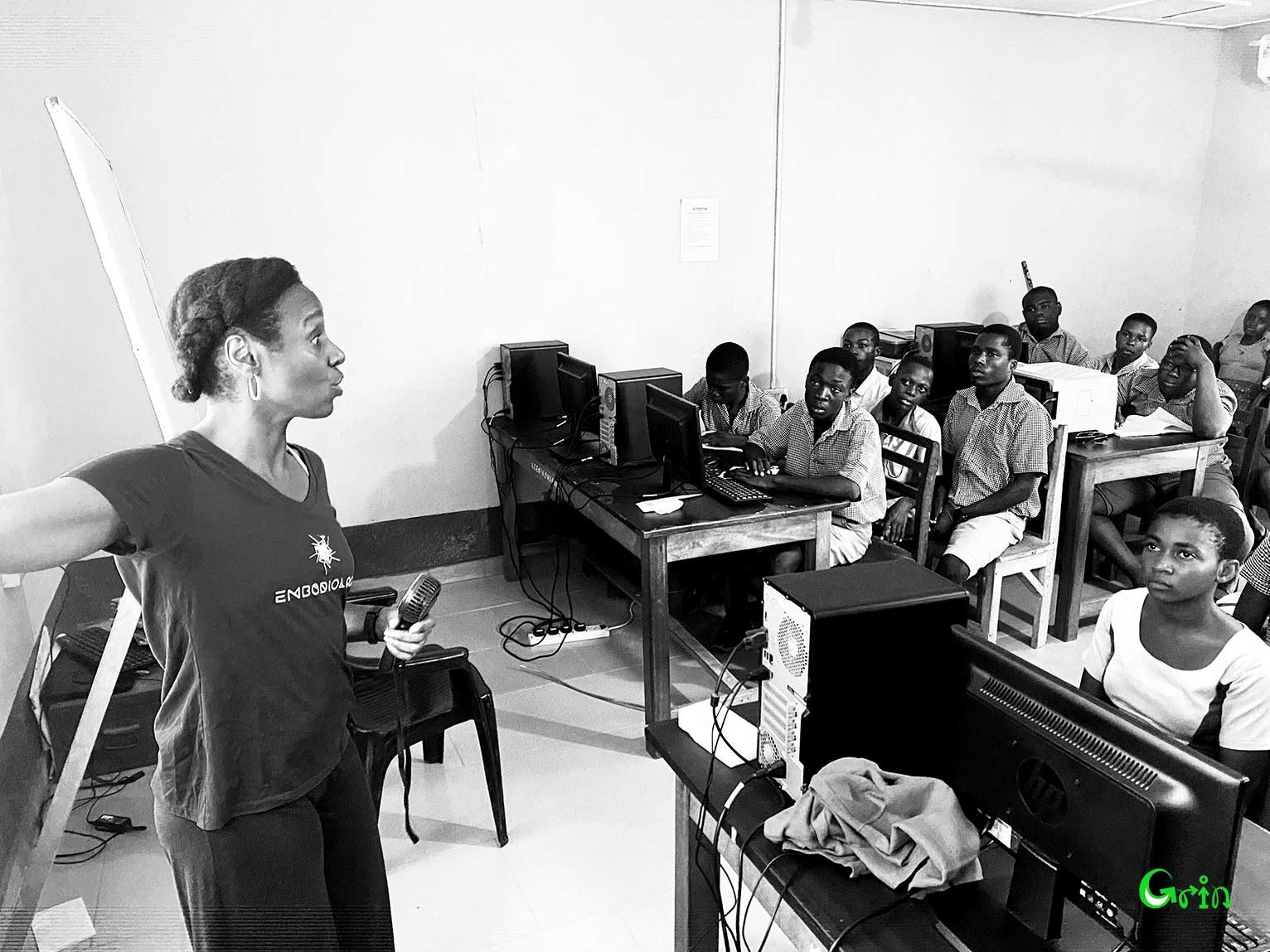
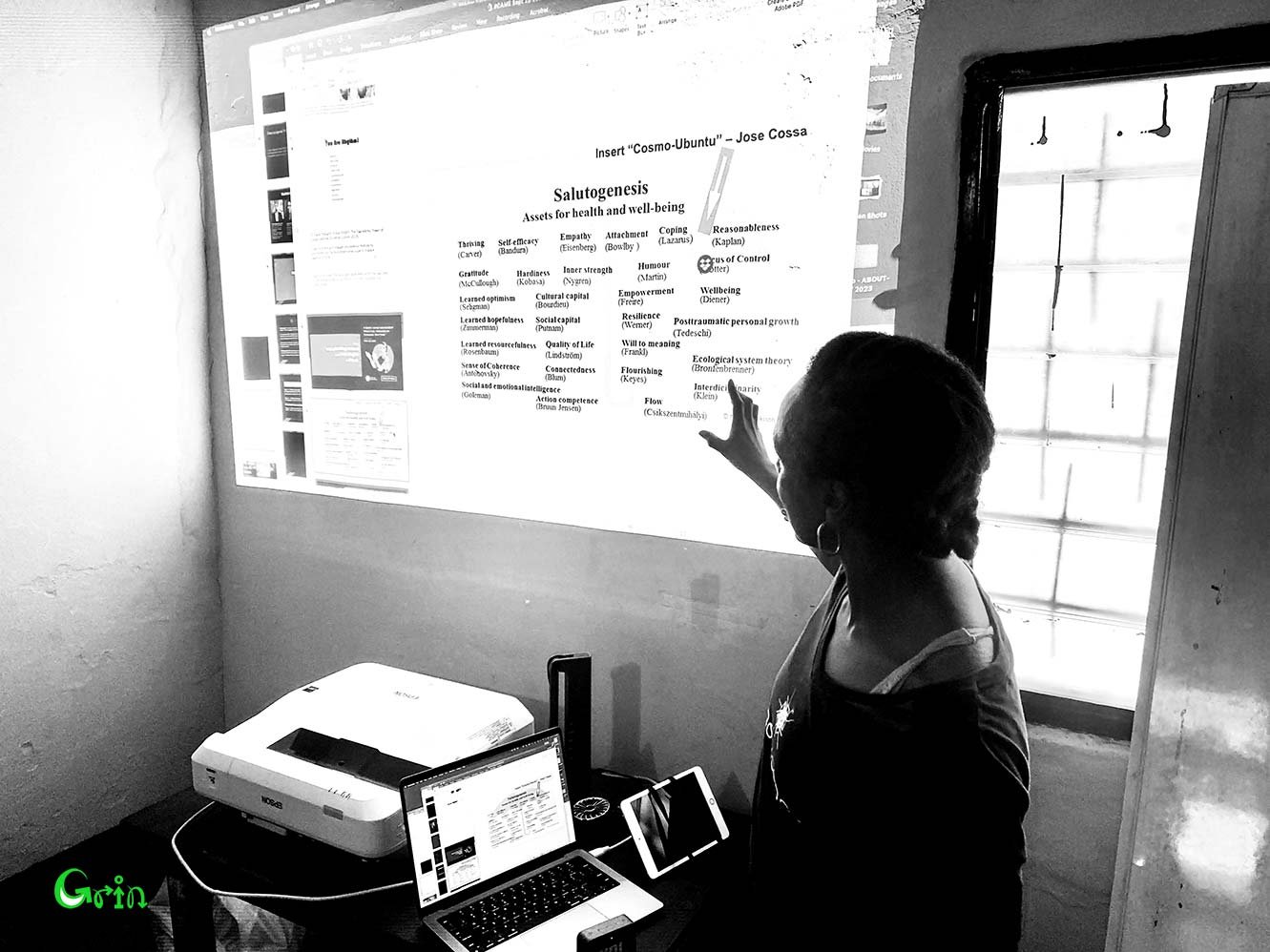
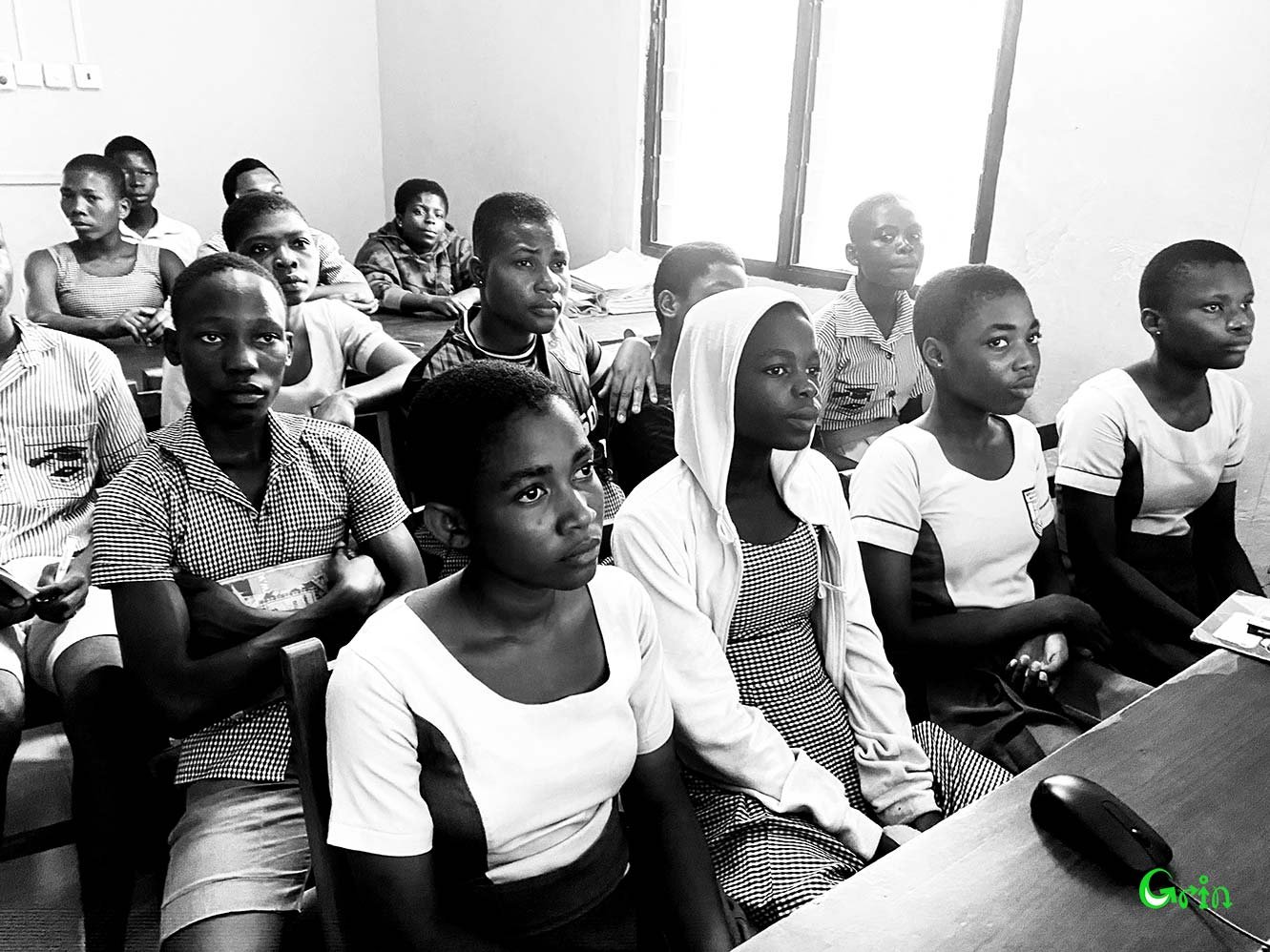
Dr. Sela Adjei: How did your research experience in Kopeyia enhance the trajectory of your career as a scholar/performance artist? How did all this inform your theory and practice of Embodiology®?
Prof. S. Ama Wray: Leading me into my research in Kopeyia Village at the Dagbe Center were questions surrounding the concept of ‘Seselelame’ and how this manifests in dance and music improvisation. I had read about this concept – largely in the work of Kathryn Linn Geurts and felt sure that it must then also be present in dance-drumming since it was a way of understanding the world through the senses that both reflected interiority and exteriority. I have been practicing improvisation in performance for over 30 years and was very much centered on how it emerges through Jazz music. However, there were questions that remained unsatisfactorily resolved for me in understanding why improvisation persists so powerfully and seemingly enigmatically in Black cultures throughout the diaspora and across the African continent, an insatiable thrust toward creativity is ever present. Seselelame is a concept that brings together the mindbody’s intersensory network; it centers the body and motion with explicit awareness of kinaesthesia and proprioception. I wanted to explore how this manifested in performance practices, so this was one of the main areas of inquiry.
As a result of my applied research I constructed a grounded theory of improvisation through the experience of Black life, with particular reference to Anlo-Ewe dance drumming, which is a central part of maintaining community cohesion. As part of distilling this knowledge into a form that could be disseminated both in practical and theoretical ways I created a framework which is shaped by 6 principles: Dynamic Rhythm; Fractal Code; Inner Sensing & Balance - Seselelame; Play & Decision-Making - Etutu; Collaborative Competition and Audience Proxemics. Applied, Embodiology promotes wellbeing by giving participants access to their whole selves through the investigation of their senses through motion. It elevates human performance by consciously developing embodied sensibilities through breath, motion and interactivity with others. The practice optimizes human communications, leading to a higher yield in trust, creativity, empathy, resilience and courage. I registered Embodiology as a trademark and this demonstrates my social, moral and ancestral responsibility, as an action researcher, to return resources to the Ewe community in Ghana, where these distinctives principles were uncovered and confirmed each time this work is shared. Returning to the community and giving tangible resources to them contributes to a restorative paradigm of research justice for the Anlo-Ewe people, furthermore representing a marker of ethical engagement with endogenous knowledge and indigenous peoples worldwide. I have the great fortune to continue on this fruitful journey of discovery and through this framework I am able to share revelations and discoveries of how Seselelame leads to an unending source of creativity. In this regard I am forever grateful to the Kopeyia community as they are custodians of powerful traditions that retain and elevate our humanity. Embodiology continues to be applied successfully across multiple domains: education, healthcare, social justice and arts; it is emerging as an evidence-based modality that enables Black people (as well as others) to see that African art practices, at their core, are enactments of healing and restoration.
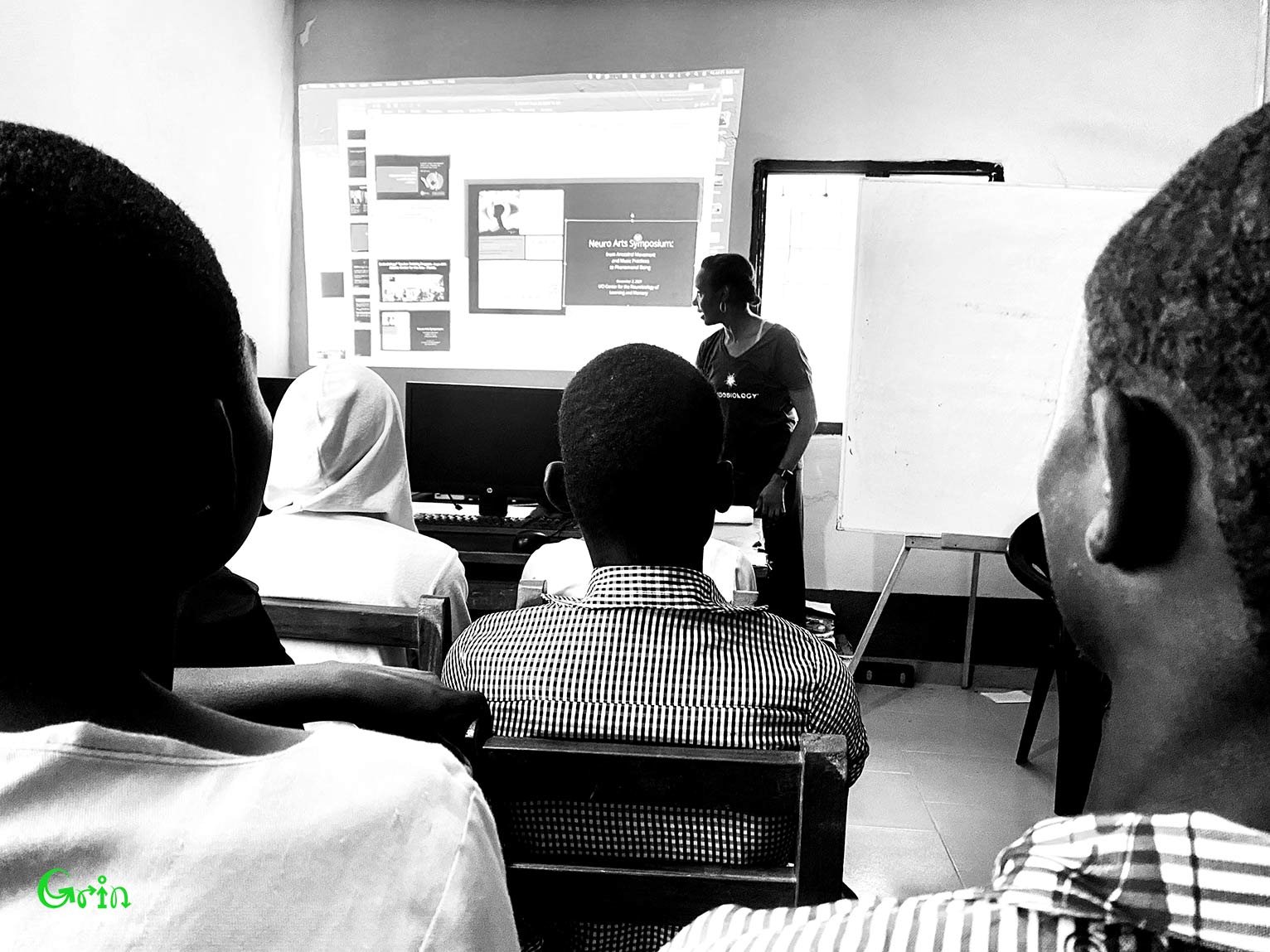
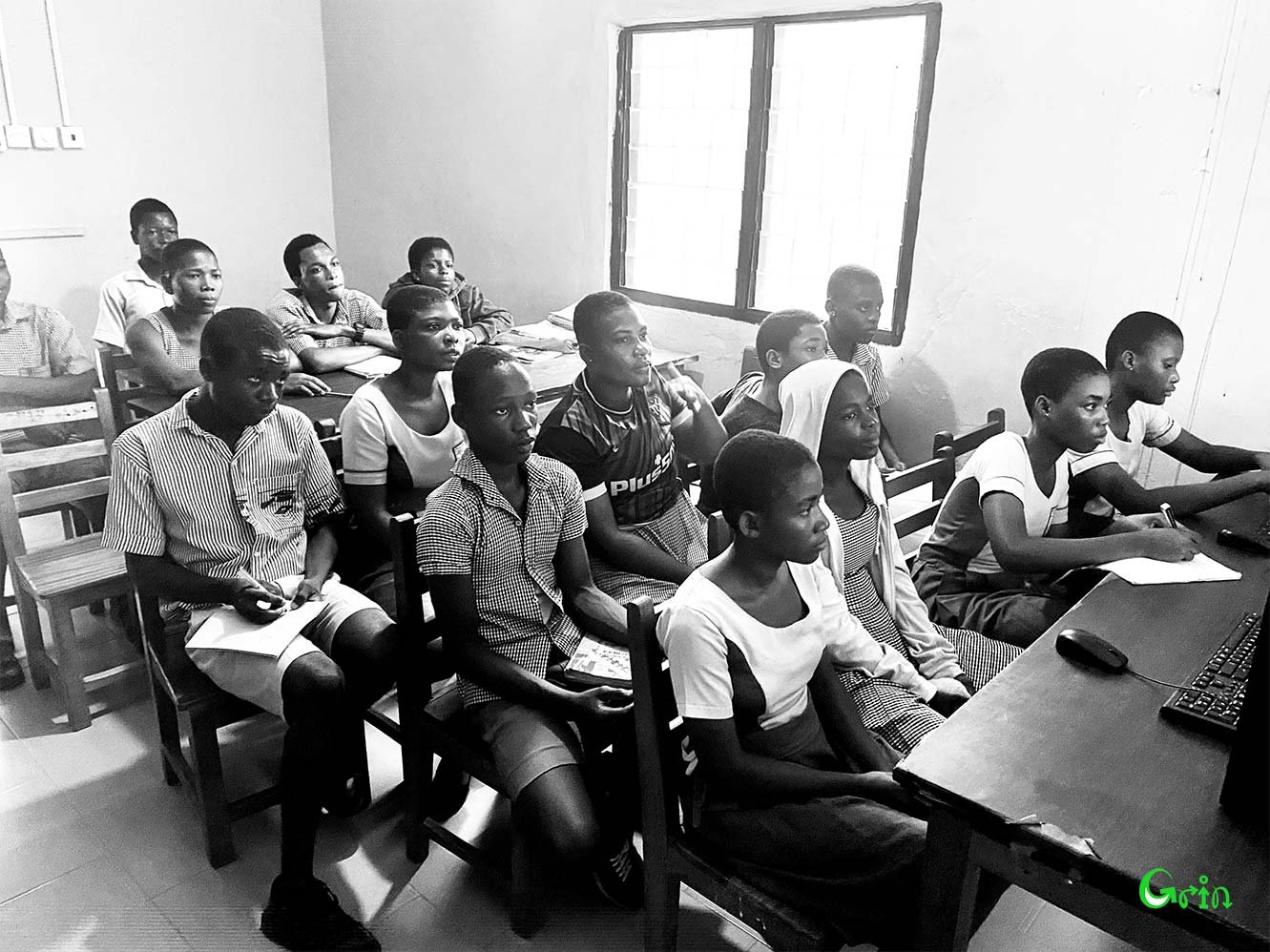
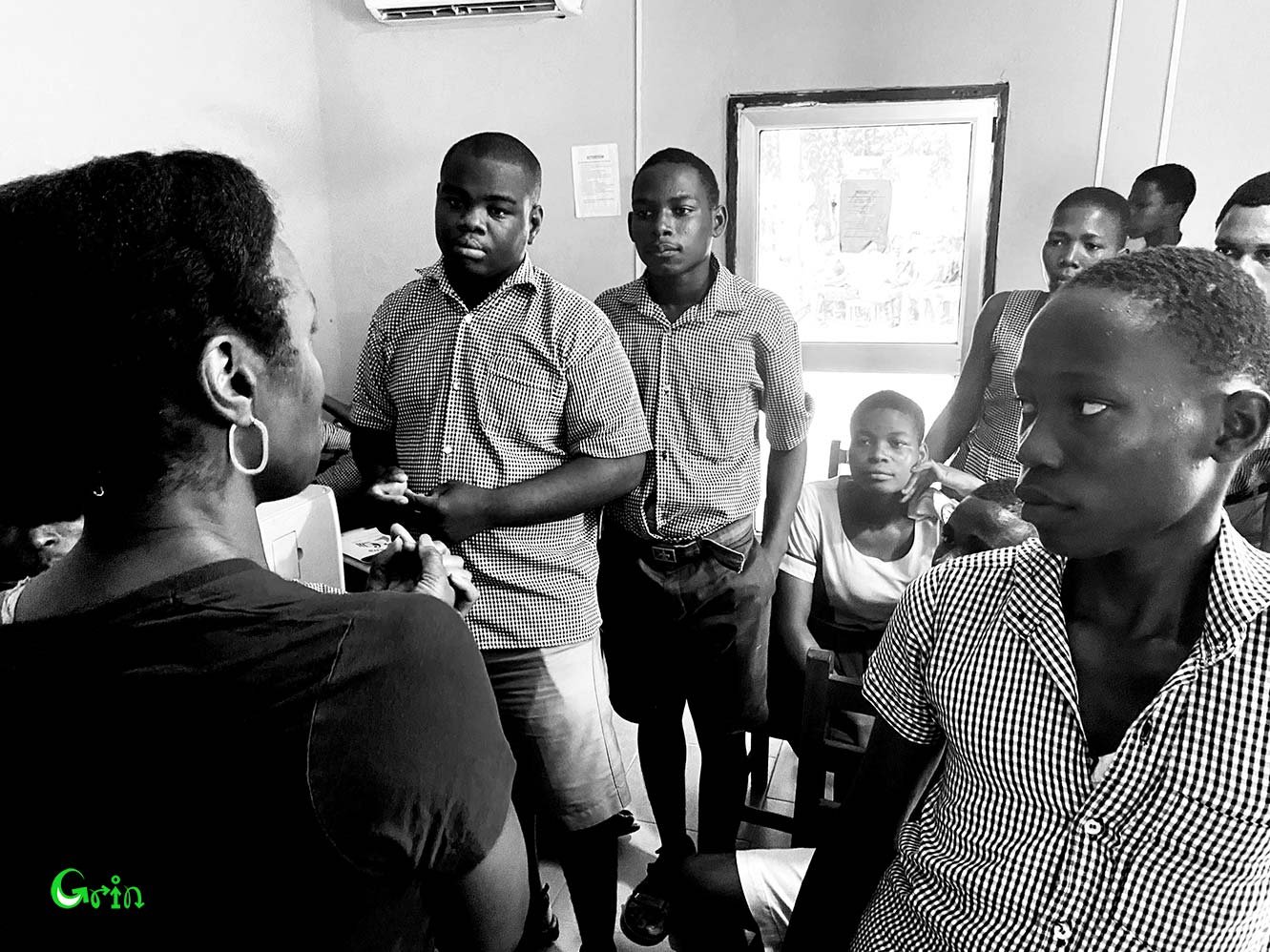
Dr. Sela Adjei: You speak of disruption as a catalyst for change, development and a positive transformation of these young minds you’ve empowered with your modest contribution to their educational experience regarding technology and accessibility. Could you briefly elaborate on this?
Prof. S. Ama Wray: Embodiology® is grounded by rhythm, and pattern recognition is one of the skills that these students implicitly have as a result of their endogenous knowledge. Suffice to say that rhythms and patterns are central to live but we also need to generate new patterns and this is a creative disruption. The Kiswahili term for this is “kuntu” and to be able to usefully disrupt is to bring new ideas into the realms of thinking and relating to each other. A volcano disrupts plant and animal life around it but the soil that emerges is massively enriched and the new life that it can support is greatly enhanced by the event. I have a strong conviction that people that carry endogenous knowledge, deep within their psyche, have the promise to be able to come up with radical ideas and solutions that our world needs to sustain human life that centers our humanity and does not privilege the machine, but rather places it alongside other tools that have certain utility.
Dr. Sela Adjei: Throughout your experience and community engagement with Dagbe Cultural Centre and the people of Kopeyia what have been your major challenges, if any.
Prof. S. Ama Wray: My spoken language skills are poor, I do everything through a translator and so I feel I miss out on the interstitial parts of life, especially the humor. I am thankful to those that have taught me some Ewe but I need to practice and be in regular contact with speakers. When I have been able to share in small exchanges with local people it has been very fulfilling and grounding.
Mr. George Agbeli, Prof. S. Ama Wray and Dr. Sela Adjei at the Dagbe Arts and Cultural Centre in Kopeyia.
Dr. Sela Adjei: What is your next plan of action to further empower Kopeyia Bloomfield school and its surrounding communities.
Prof. S. Ama Wray: As Embodiology® grows in its impact, so too will resources go back to the community. We began the computer lab in 2021 and it is centered on pedagogy for the school children. We know there are particular needs in the community around digital technologies and access. It is important that it helps the local economy and ecology. It is also important that they as culture bearers see their imprints in the digital world and that it is not simply a portal for consuming western cultural artefacts which are comparatively poor in their capacity to elevate life and spirit.
Dr. Sela Adjei: Any further recommendations, call to action or any final words?
Prof. S. Ama Wray: This trip to Kopeyia Bloomfield school was extraordinary; the children saw themselves and their families in the research; they saw the impact of their culture in the world. They taught me yet more about what it is that this work is doing as they shared, questioned and performed. It was electric. I have never experienced anything like it in my entire life.
Concluding remarks
In this engaging interaction, between myself and Prof. S. Ama Wray, a remarkable journey of creativity, culture, and community unfolds. Prof. Wray emerges as an inspiring figure, driven by her passion for dance, music, and her powerful concept of Embodiology®. Embodiology® is a testament to Prof Wray’s innovative spirit, as she blends techniques and practical strategies with cultural philosophy to enhance creative skills development. Prof. Wray's impact extends beyond academia as she contributes to transformative initiatives like AI4Afrika. As a founding member, she collaborates with fellow scholars, scientists, and artists to harness the potential of artificial intelligence for positive change. Her commitment to community-driven initiatives is exemplified by her journey back to Kopeyia, where she empowered young minds by establishing a computer lab. By integrating technology with their endogenous knowledge, she nurtures creative disruption, paving the way for innovative solutions.
Through her dedication to sharing knowledge, Wray uplifts communities and individuals globally. Her recent trip to Kopeyia Bloomfield School was a defining moment, where the students saw themselves in the research and embraced their cultural impact on the world. Prof. S. Ama Wray's journey, from the roots of Ewe traditions to the forefront of Embodiology® and AI4Afrika, showcases her as a visionary artist, educator, and a change-maker. Her journey has been marked by challenges, yet Prof. Wray’s resilience and passion for knowledge-sharing have led to transformative experiences. She often leaves an indelible imprint on the minds of the people she teaches and interacts with. As she continues to empower the Kopeyia community and beyond, her work acts as a beacon of creativity, resilience, and community-driven change. Prof. S. Ama Wray’s remarkable journey stands as a testament to the extraordinary impact she has had on dance, education, technology, and the lives of countless individuals worldwide.

